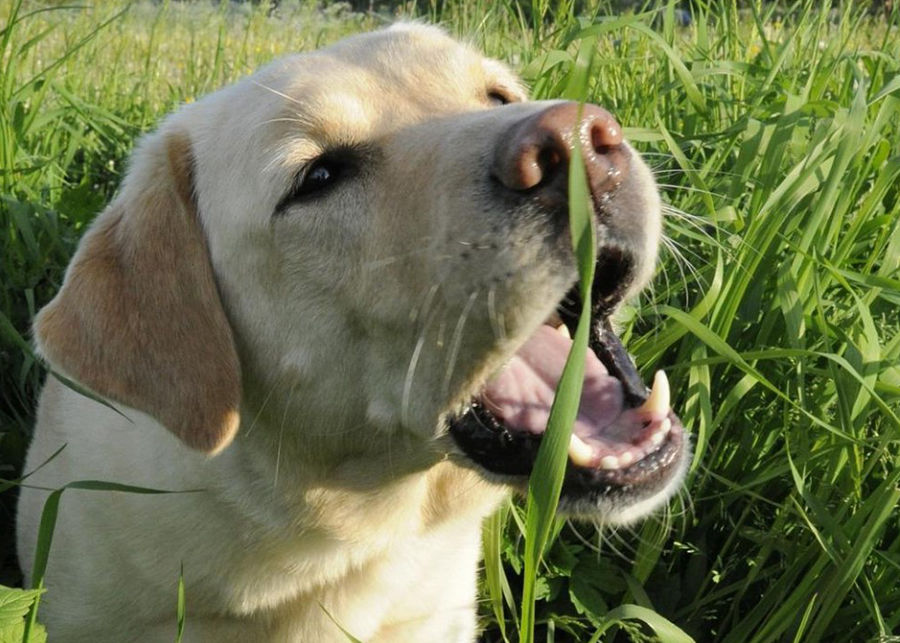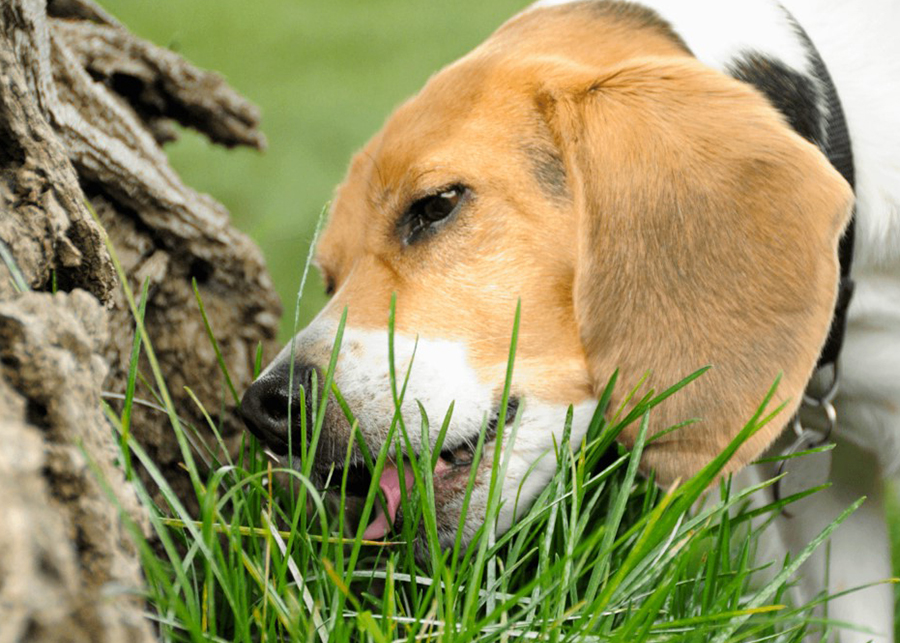
Grass eating is a common dog behavior. That said, there are a few reasons why dogs eat grass. Depending on why your pup is eating grass, you may be able to discourage it or not. Luckily, there are some things you can do to try and figure out why your dog is eating grass. There’s no need to panic if your dog is eating grass — but there are some indications you should worry about if your pet isn’t being reduced with the other lawn plants.
There are a few reasons why dogs eat grass. Some are psychological, while others are physical. It is important to determine the reason behind grass eating before attempting to discourage your pet. You may also want to consider your dog’s health. In some cases, grass can be harmful to your dog’s digestive system, so grass is best avoided if possible.

why is my dog eat grass
When you notice your dog is eating grass, it’s important to know why. This behavior can be a sign of a health problem, such as a stomach ailment. Fortunately, your dog can usually be treated in many cases. It’s worth visiting your veterinarian to get a proper diagnosis and treatment plan.
Your dog may be eating grass because it needs extra nutrition. Grass contains chlorophyll and fiber that aids digestion. Your vet can identify any nutritional gaps and recommend better diet options for your dog. However, your dog may also be eating grass because he or she enjoys the texture or taste. If this is the case, you can try feeding your dog a special diet that contains higher amounts of fibre.
Some of the reasons your dog might be eating grass include boredom or anxiety. If it’s a habit that keeps happening despite your best efforts to stop it, a dietary problem may be to blame. Your dog might have intestinal worms or a deficiency. If your dog eats grass often, see a vet immediately to ensure there’s no underlying medical condition.
Should I Stop My Dog from Eating Grass?
Dogs that eat grass often have a variety of underlying reasons. It could be that they are bored or anxious, or they could be suffering from a dietary deficiency. If your dog eats grass frequently, it’s a good idea to change its diet. Grass contains fiber and chlorophyll, which help with digestion. VCA Hospitals veterinarians support this theory. However, Psychology Today notes that there is no solid evidence to support the claim that grass is a food source.
If your dog is eating grass regularly, you should try to stop it immediately. It may not be an immediate sign of an underlying health problem, but it should be a cause for concern. If it is a new habit or occurs more often than normal, it could be a sign that something is wrong with your dog.
Is eating grass a physical need?
Grass is an excellent source of fiber for dogs. Moreover, grass helps dogs pass stool. The lack of fiber in the diet can interfere with the dog’s ability to digest food. So, it is important to include grass in the dog’s diet. If your dog seems to suffer from stomach discomfort, take it to the veterinarian for a proper diagnosis.
Although dogs can eat grass for a variety of reasons, the primary purpose is to relieve stomach upsets. In ancient times, wild dogs ate grass as an instinctive way to overcome nausea and upset. However, there is no scientific evidence to back this
up. However, when grass is paired with decreased appetite, blood in the stool, and/or lethargy, it’s worth seeking medical attention.

Is eating grass a psychological need?
There are several reasons why a dog might eat grass. One reason could be that grass is high in fiber and helps relieve stress. The other reason could be that grass helps the dog feel comfortable. Some dogs may eat grass as a way to self-soothe or to settle boredom. Regardless of the reason, it’s important to identify the cause of the behavior before trying to curb it.
Many pet parents have noticed that their dog may eat grass when he or she is bored or lonely. A dog eating grass might be feeling lonely or bored, and this behavior could indicate a medical condition. Fortunately, some veterinarians can provide assistance if you think your dog is suffering from an anxiety issue.
Is eating grass instinct?
Although grass -eating is not an instinctual behavior of dogs, some believe that grass is good for the dog’s health and provides vital nutrients. Some people believe that grass eating helps the dog with constipation because it contains rough fibers which can help loosen stools and pass them out through the colon. Regardless of the underlying reasons for grass-eating, there are ways to get your dog to stop it.
One cause of grass-eating in dogs is psychological imbalance. Some dogs will reach for the grass as a way to calm their stomachs when they are upset. If you notice your dog’s behavior is causing you stress, see your veterinarian for advice.
Why Dogs Eat Grass Result
Although not much is known about the science behind dogs eating grass, there has been plenty of anecdotal evidence that leads us to believe that they eat grass to aid with digestion or other health related issues. Dogs who eat Grass do so because of many different reasons. It might be related to their dietary needs, boredom or anxiety. In any case, it often pays off if you give your dog a little more attention and focus on its diet. Just remember not to allow your dog to completely forgo meals; dogs need protein and carbohydrates for energy just as we do!

